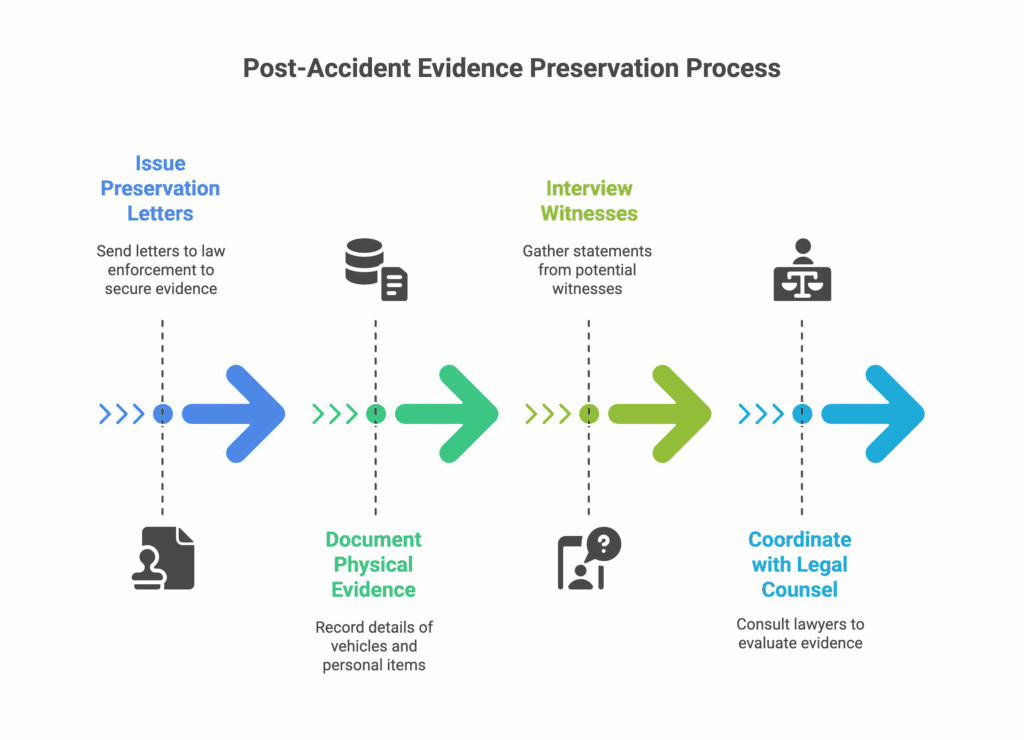If you’re facing immigration-related criminal charges in Phoenix after the federal sweep that led to 124 individuals being charged, you must act fast to protect your rights. Understand the severity of statutes like 8 U.S.C. § 1324 (smuggling) and 18 U.S.C. § 1546 (document fraud), and assert your right to remain silent and request counsel immediately.
Being skilled in challenging evidence and negotiating pleas can shape outcomes. The following information addresses concrete steps and nuanced defense strategies. Hire the Suzuki Law Offices when you are arrested for immigration charges in Phoenix.
Scope and Significance of the Recent 124 Immigration Charges in the District of Arizona for Phoenix Residents
Although the recent operation spanned just one week, federal authorities charged 124 individuals in Arizona with immigration violations, reflecting a decisive escalation in enforcement under the Department of Justice’s “Take Back America” initiative.
Federal authorities charged 124 people with immigration violations in Arizona in just one week, marking a sharp rise in enforcement.
As someone seeking to serve Phoenix residents, you must recognize the broad scope of immigration crimes in Arizona that are now facing increased scrutiny. ICE enforcement tactics in Phoenix have intensified, with coordinated actions from ICE ERO, HSI, and Border Patrol.
This proactive approach increases the risk for community members, making it vital to understand how to challenge ICE searches in Phoenix lawfully and responsibly.
Each charge—ranging from illegal re-entry to transportation of undocumented persons—carries significant penalties for immigration violations, including detention, fines, and potential removal.
As these cases proceed, remember that all defendants are presumed innocent. You should encourage lawful advocacy, ensure due process, and provide procedural guidance to affected individuals navigating this rapidly changing legal landscape.
Committed to providing exceptional legal service to each and every client through integrity, compassion and experience.
Get StartedKey Federal Statutes at Issue in Phoenix: Alien Smuggling, Document Fraud, and False Statements
You must recognize that federal statutes governing alien smuggling, document fraud, and false statements carry significant legal consequences in Phoenix immigration cases.
When facing such charges, you’ll need to understand the statutory definitions, potential penalties, and evidentiary standards applied by the courts.
Careful analysis of case law and procedural requirements is crucial to mount an effective defense.
Understanding Alien Smuggling Laws
When federal authorities prosecute immigration crimes in Phoenix, they rely on several vital statutes—most notably 8 U.S.C.. § 1324, which governs alien smuggling, as well as laws addressing document fraud and false statements under 18 U.S.C. §§ 1546 and 1001.
Under alien smuggling laws, you face prosecution for knowingly transporting, harboring, or encouraging the unlawful entry of non-citizens. To defend immigration charges, you’ll need to analyze facts, scrutinize intent, and assess procedural compliance.
Challenging ICE searches is crucial; improper searches could lead to the exclusion of evidence. Penalties for immigration crimes are severe, ranging from fines to years of imprisonment, depending on aggravating factors such as a profit motive or endangerment.
Diligent advocacy is indispensable to ensure due process and uphold the presumption of innocence.
Consequences of Document Fraud
If federal prosecutors in Phoenix pursue document fraud charges, they typically invoke 18 U.S.C. § 1546, targeting individuals who forge, alter, or use fraudulent immigration documents, such as visas, green cards, or employment authorization documents. You must recognize that convictions can trigger severe penalties for immigration crimes, including removal and permanent inadmissibility. The table below outlines core aspects to consider:
| Offense Type | Key Evidence | Legal Response |
|---|---|---|
| Forged Documents | Altered visas/cards | Challenge authenticity |
| False Statements | Conflicting records | Assert false statement charge defenses |
| Misuse of IDs | Non-matching data | Argue lack of intent |
| Repeated Offenses | Prior convictions | Seek sentence mitigation |
| Aiding Others | Linked applications | Stress limited involvement |
Working with a Phoenix lawyer helps you navigate intricacies, build defenses, and serve your community’s interests ethically.
Penalties for False Statements
A false statement made in connection with immigration proceedings or related criminal investigations in Phoenix can trigger prosecution under 18 U.S.C. § 1001, a statute that penalizes knowingly and willfully making materially false, fictitious, or fraudulent statements to federal authorities.
If you’re facing such allegations, it’s essential to understand the potential penalties for false statements, including imprisonment of up to five years per count, fines, and adverse immigration consequences.
To serve your best interests, consider:
- Engaging a Phoenix lawyer on immigration-related federal cases for tailored defense strategies
- Challenging ICE searches and arrests in Phoenix federal cases by scrutinizing procedural errors
- Asserting Phoenix document fraud and false statement charge defenses based on evidence and intent
- Seeking plea negotiations or mitigating factors to minimize sentencing exposure
Always prioritize legal guidance in these matters.
Potential Penalties in Phoenix Cases: Fines, Prison Terms, and Removal Proceedings
If you’re facing immigration-related criminal charges in Phoenix, you’ll confront not only potential fines and prison terms but also serious immigration consequences such as removal proceedings.
The federal sentencing guidelines and the specific statutes charged will determine the range of penalties you may receive. It’s crucial to understand how these outcomes interact and what procedural steps follow upon conviction.
Criminal Sentences and Fines
Although each case requires individual assessment based on the specific charge and the defendant’s background, federal immigration violations prosecuted in Phoenix frequently expose individuals to severe penalties, including substantial fines, imprisonment, and potential removal from the United States.
When evaluating criminal sentences and fines, it is essential to understand the range of immigration crime penalties and consider practical plea negotiation tips. Sentencing is often influenced by criminal history, aggravating factors, and statutory minimums. Judges exercise discretion within federal guidelines, but outcomes can be unpredictable.
To serve your clients or community, guarantee you’re informed and proactive throughout each procedural stage.
- Criminal sentences may involve months or years of federal imprisonment
- Fines can exceed thousands of dollars for immigration-related convictions
- Aggravating facts, like prior deportations, increase penalties
- Early plea negotiation may reduce fines or incarceration
Immigration Consequences Overview
When federal authorities charge individuals with immigration offenses in Phoenix, the legal consequences extend far beyond immediate criminal penalties, frequently involving substantial fines, custodial sentences, and the initiation of removal proceedings.
You must understand that penalties for immigration crimes—such as illegal re-entry or smuggling—carry both criminal and immigration consequences. Conviction typically triggers removal proceedings, where immigration enforcement tactics intensify, and the risk of deportation becomes imminent.
Defending against immigration charges, therefore, requires a strategic approach that analyzes case law and procedural safeguards to minimize exposure. Courts weigh aggravating factors, including prior convictions or involvement in organized crime.
If you serve those affected, it’s essential to advise them not only about fines and prison terms but also about mandatory detention, loss of status, and permanent bars to reentry.
Click to contact our personal injury lawyers today
ICE and HSI Enforcement Tactics Commonly Used in Phoenix Immigration Operations
You’ll encounter ICE and HSI employing surveillance and sting operations as standard procedures in Phoenix immigration enforcement.
Targeted workplace raids also feature prominently, often leading to criminal charges against both employees and employers.
Understanding these tactics is vital when evaluating the procedural posture and evidentiary issues in such cases.
Surveillance and Sting Operations
While federal immigration enforcement in Phoenix relies on a range of strategies, surveillance and sting operations represent two of the most effective tactics employed by ICE and HSI. You should understand that these agencies utilize sophisticated surveillance tactics to identify, track, and collect evidence against individuals suspected of immigration violations.
Sting operations, often coordinated with local and federal partners, are designed to apprehend suspects during the commission of an offense, ensuring resilient case development and preserving evidence for prosecution. By adhering to established legal procedures, ICE enforcement actions maintain the integrity of the judicial process and protect the rights of all parties involved.
As you seek to serve your community, keep these enforcement mechanisms in mind:
- Continuous electronic monitoring
- Undercover operations
- Controlled deliveries
- Use of confidential informants
Targeted Workplace Raids
Because enforcement agencies prioritize the disruption of unauthorized employment, targeted workplace raids have become a central tactic utilized by ICE and HSI in Phoenix immigration operations. Suppose you’re assisting individuals or employers affected by these enforcement actions. In that case, it’s essential to understand the legal procedures, particularly regarding the preservation of evidence in Phoenix immigration enforcement actions and the constitutional rights of individuals during ICE arrests in Phoenix. Promptly documenting circumstances and retaining counsel are vital steps in defending against immigration-related criminal charges in Phoenix. Review the following procedural considerations:
| Procedural Step | Legal Significance |
|---|---|
| Document all law enforcement actions | Preserves evidence for defense |
| Assert the right to remain silent | Protects against self-incrimination |
| Request legal counsel immediately | Ensures constitutional rights are protected |
| Retain workplace documentation | Supports lawful employment claims |
| Record witness statements | Strengthens evidentiary position |
Complete a Free Case Evaluation form now
Understanding Your Constitutional Rights During Federal Immigration Arrests in Phoenix
Even during a federal immigration arrest in Phoenix, your constitutional rights remain firmly in place and demand careful attention. Federal authorities must respect these rights, regardless of the specific immigration crimes alleged. Understanding your legal protections is critical for effective defense strategies and for upholding justice, particularly when navigating the intricate realities of federal immigration arrests.
During these encounters, you should carefully observe and invoke your rights, including:
- Right to Remain Silent: You don’t have to answer questions about your immigration status or origin.
- Right to Legal Counsel: Request to speak with an attorney before making any statements.
- Protection Against Self-Incrimination: Avoid volunteering information that could be used against you.
- Right to Due Process: You’re entitled to a fair hearing and mustn’t be subjected to arbitrary detention.
Challenging Probable Cause and Suppressing Unlawful ICE Searches in Phoenix
After asserting your constitutional rights during a federal immigration arrest in Phoenix, the next step often involves scrutinizing the legality of ICE’s conduct, particularly its basis for search and seizure.
As you engage in immigration criminal defense, challenging probable cause becomes pivotal. Under Phoenix immigration law, ICE must establish specific, articulable facts justifying any search or detention.
If authorities acted without a valid warrant, exceeded the scope of consent, or relied on vague suspicion, you may move to suppress evidence obtained from such unlawful ICE searches.
Precedent such as Arizona v. Gant and United States v. Brignoni-Ponce affirms your right to contest overbroad or unsupported intrusions.
Work closely with your legal counsel to review arrest affidavits, bodycam footage, and ICE reports for procedural errors or rights violations.
Building Your Phoenix Defense: Evidence Preservation and Witness Testimony
While preparing your defense against immigration criminal charges in Phoenix, you must act swiftly to secure all relevant evidence and identify potential witnesses. Evidence preservation is essential—delays can result in lost or altered physical items, digital records, or surveillance footage. Promptly documenting and safeguarding materials can directly impact your defense against immigration crimes.
Act quickly to secure evidence and witnesses—delays can jeopardize your defense against immigration criminal charges in Phoenix.
Additionally, you need to identify and interview witnesses whose testimony could support your case or undermine the prosecution’s claims. Compelling witness testimony often clarifies timelines, motivations, or the presence of coercion, which are fundamental in cases involving criminal charges in Phoenix.
Consider these procedural steps:
- Issue preservation letters to law enforcement or third parties to ensure evidence remains intact.
- Document physical evidence (such as vehicles, phones, and clothing) with photographs and detailed logs.
- Interview potential witnesses quickly to preserve accurate recollections.
- Coordinate with legal counsel to assess the admissibility and relevance of all gathered material.

Meticulous attention to evidence and witnesses serves both justice and your community.
Proven Strategies for Defending Against Alien Smuggling Charges in Phoenix
Because alien smuggling charges in Phoenix carry severe penalties and complicated legal implications, you must approach your defense with a clear, structured strategy rooted in federal law and procedural safeguards.
Begin by evaluating the indictment’s specifics, focusing on whether the government can prove intent and knowledge beyond a reasonable doubt.
Effective defense strategies against alien smuggling include scrutinizing arrest procedures for constitutional violations and challenging the admissibility of statements or evidence obtained unlawfully.
Analyze whether law enforcement adhered to proper protocols, as suppression motions can significantly impact your case.
You should also assess all available plea negotiation tips for federal immigration charges, carefully weighing the benefits of cooperation versus trial to minimize penalties for immigration crimes in the district of Arizona.
Collaborate with counsel to identify mitigating factors that support leniency and explore avenues for avoiding removal proceedings after criminal convictions.
Always document your service-oriented contributions, as courts may consider them during sentencing.
Navigating Plea Negotiations and Alternative Resolutions in Phoenix Federal Court
Although federal immigration prosecutions in Phoenix carry significant risks, you can often achieve a more favorable outcome by strategically maneuvering plea negotiations and alternative resolutions. When faced with charges such as alien smuggling or illegal re-entry in the Phoenix District of Arizona, you must carefully weigh the government’s evidence, enforcement tactics by HSI and ICE, and the collateral consequences of a conviction.
Employing the Phoenix district of Arizona alien smuggling defense strategies and knowing plea negotiation tips for federal immigration charges in Phoenix are vital. A well-negotiated plea may reduce charges, limit sentencing exposure, or even avoid removal proceedings after criminal convictions in Phoenix.
Consider the following procedural guidance:
- Challenge HSI and ICE enforcement tactics in Phoenix and how to fight them.
- Seek diversion programs or deferred prosecution when available.
- Negotiate for plea agreements that minimize immigration consequences.
- Ensure the record reflects mitigating factors supporting community and rehabilitation.
Your approach should always align with serving clients and safeguarding their futures.
Mitigating Civil Immigration Consequences of Criminal Convictions for Phoenix Residents
Given the significant overlap between federal criminal prosecutions and subsequent immigration proceedings in Phoenix, you must immediately assess the potential civil immigration consequences that can follow a criminal conviction. Convictions—even for seemingly minor offenses—can trigger removal, inadmissibility, or bars to relief. Start by consulting the charging documents and plea agreements, analyzing each statute under which you’re charged.
Collaborate with both criminal and immigration counsel to identify immigration-safe alternatives or lesser-included offenses. Explore post-conviction relief if prior convictions create problems.
| Criminal Charge | Possible Immigration Consequence |
|---|---|
| Illegal Re-entry (8 USC §1326) | Mandatory removal, re-entry bar |
| Smuggling (8 USC §1324) | Aggravated felony, permanent bar |
| Simple Illegal Entry (8 USC §1325) | Possible inadmissibility, waiverable |
A timely legal strategy can mean the difference between community reunification and permanent separation. You must approach each step with diligence, ensuring that every plea or sentence considers long-term immigration status and family unity.
Why Suzuki Law’s Phoenix Expertise Matters in Immigration-Related Defenses
Navigating the intersection of federal immigration charges and criminal law in Phoenix demands a legal team with a nuanced understanding of both systems. You need counsel that recognizes the procedural intricacies and the real-life consequences for individuals and families.
Suzuki Law’s local expertise provides you with the strategic advantage required in high-stakes cases, such as those seen during the Department of Justice’s “Take Back America” initiative.
- Deep familiarity with both federal and Arizona court procedures ensures proper motion practice and evidentiary challenges.
- Case analysis focuses on distinguishing between civil and criminal immigration consequences, safeguarding your long-term interests.
- Culturally competent representation respects your values and the importance of community support throughout proceedings.
- Proactive communication with federal agencies and prosecutors can lead to favorable plea negotiations or the dismissal of charges.
When you face immigration-related criminal allegations in Phoenix, leveraging Suzuki Law’s expertise positions you to master complex legal challenges with clarity and compassion.
Frequently Asked Questions
How Can Family Members Locate Detained Individuals After an Immigration Arrest in Phoenix?
If you seek to locate a family member detained after an immigration arrest in Phoenix, you should use the ICE Detainee Locator System online.
Input the person’s full name, country of birth, or A-number.
Contact local ICE field offices for confirmation.
You must verify your identity and relationship.
Act promptly, as detainee transfers can occur.
Always respect privacy and maintain professionalism when supporting individuals through these procedures.
What Steps Should You Take Immediately After Learning About a Loved One’s Arrest?
Upon learning of a loved one’s arrest, you should act swiftly. First, document all available facts, including location, time, and charges.
Contact the detaining authority to confirm your loved one’s status and the facility where they are being held.
Secure legal counsel focusing on immigration-related criminal matters immediately.
Refrain from discussing details with authorities without an attorney present.
Ensure your loved one understands their right to remain silent.
Prompt, informed action maximizes their legal protection and upholds due process.
Can Detained Individuals in Phoenix Request Bond or Release While Their Case Is Pending?
If someone’s detained in Phoenix on immigration-related charges, you can request bond or release while the case is pending.
You’ll need to file a motion for bond with the court or appear before an immigration judge for a bond hearing.
The judge will consider factors like flight risk and danger to the community.
You must gather supporting evidence, such as community ties and a lack of criminal history, to advocate for release.
How Do Language Barriers Affect the Legal Process in Phoenix Federal Immigration Cases?
When you face language barriers during federal immigration proceedings in Phoenix, you risk misunderstanding your rights, court procedures, or charges. You must request a qualified interpreter at every stage—arraignment, bond hearings, and trial—to guarantee due process.
Courts provide interpreters; however, it is recommended to confirm interpreter availability in advance. By serving as an advocate, you help protect the rights of non-English speakers, ensuring they receive fair treatment and can participate meaningfully in their defense.
Are There Community Organizations in Phoenix That Offer Support to Families of the Accused?
Suppose you’re seeking assistance for families of the accused. In that case, you’ll find several Phoenix-based organizations, like Puente Human Rights Movement and the Florence Immigrant & Refugee Rights Project, offering legal guidance, emotional support, and procedural updates.
You should reach out promptly, as these groups can help you steer court procedures, connect with pro bono attorneys, and understand rights under federal law.
Timely engagement ensures families receive coordinated support through each legal stage.
Call or text (602) 682-5270 or complete a Free Case Evaluation form




